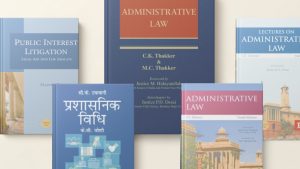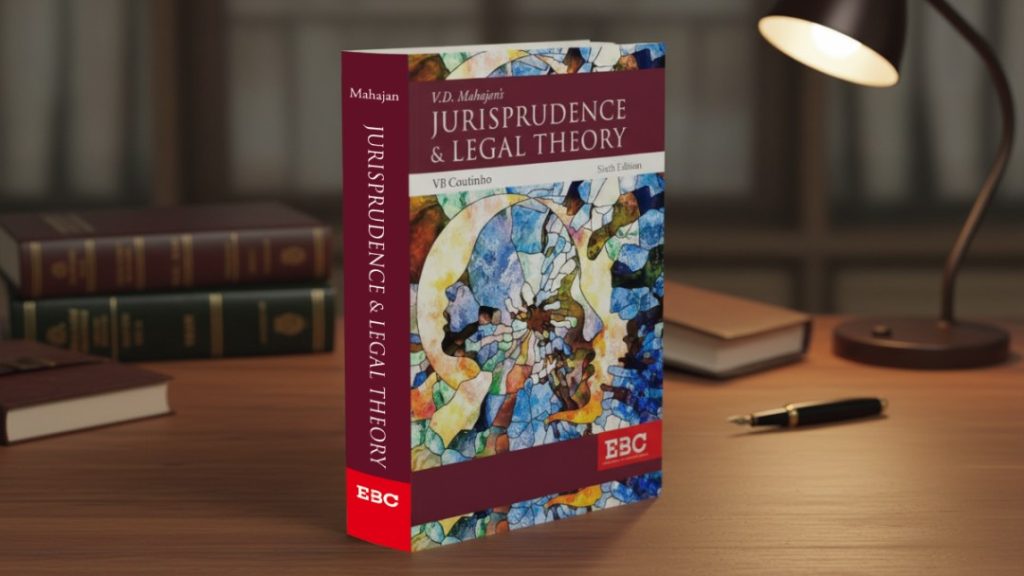
These books cover the core areas every LL.M. student must be confident in, from jurisprudence to international law. A perfect reading list to strengthen advanced legal study.
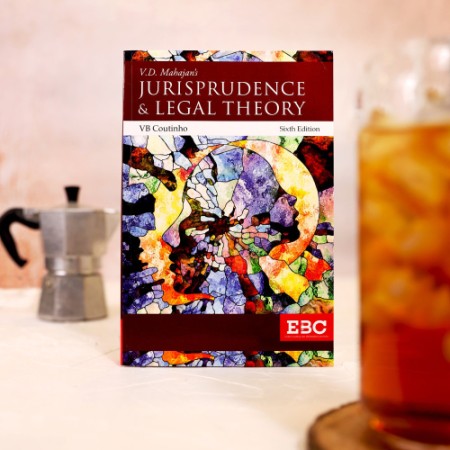
V.D. Mahajan’s Jurisprudence and Legal Theory
Justice K. Ramaswamy describes jurisprudence as the “eye of the law,” connecting legal thought with the spirit of its time. V.D. Mahajan’s Jurisprudence & Legal Theory traces the evolution of jurisprudence from its Roman origins to its modern, expanded understanding. The new edition is revised and enriched with extensive Indian case law. It explains major legal concepts—rights, duties, legislation, precedent, sovereignty, justice, and more—in clear and simple language. Separate chapters on key topics, including a new one on Feminist Movements, along with suggested readings and a detailed index, enhance the book’s value.

Administrative Law
The book provides a comprehensive and critical analysis of administrative law, including major principles, judicial developments, and procedural safeguards. The 10th edition has been extensively updated with the latest case laws and contemporary developments. It explains how administrative law operates between the executive and citizens, with special focus on remedies. Written in clear and accessible language, it offers thorough case discussions, indexes, and suggested readings for deeper learning.
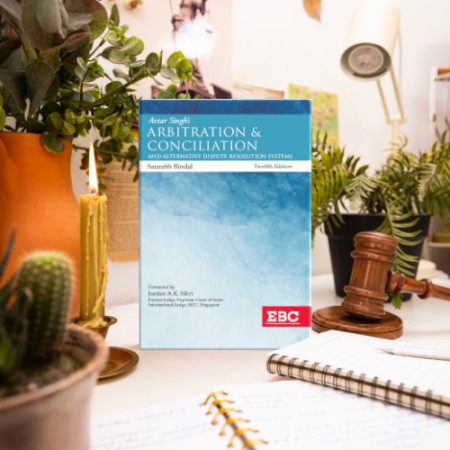
Avtar Singh’s Law of Arbitration and Conciliation and ADR Systems
This book presents a comprehensive overview of arbitration law in India, tracing its evolution from 1940 to the latest developments. The revised edition incorporates major amendments of 2015, 2019, and 2021, focusing on faster dispute resolution, reduced court intervention, and greater reliance on arbitral institutions. Key reforms such as timelines for proceedings, interim relief for foreign awards, and changes to enforcement provisions are clearly explained. Recent judicial interpretations and landmark rulings have been fully integrated.

Avtar Singh’s Company Law
This edition of Avtar Singh’s Company Law reflects key statutory changes introduced through the 2019, 2020, and 2021 amendments to the Companies Act, 2013, alongside major judicial developments from NCLT, NCLAT, High Courts, and the Supreme Court. The book has been thoughtfully restructured to offer a more logical and streamlined presentation of principles, legislation, and case law. A dedicated chapter on “Winding Up” simplifies the understanding of insolvency and the legal closure of business entities. It remains an indispensable reference for students, legal professionals, company secretaries, CAs, in-house counsel, and anyone seeking deep insight into corporate law.
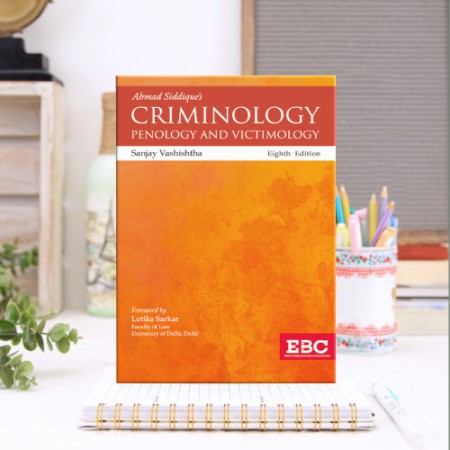
Ahmad Siddique’s Criminology, Penology and Victimology
The eighth edition of Ahmad Siddique’s Criminology, Penology and Victimology presents an updated and comprehensive study of crime, criminal behaviour and the justice system in India. It covers major contemporary issues such as organised crime, white-collar offences, cybercrime, drug abuse and female criminality, along with detailed discussions on prison reforms, probation and sentencing. Updated in line with global frameworks like the Tokyo Rules and Nelson Mandela Rules, the book also reflects recent legal changes including the Criminal Law (Amendment) Act, 2013 and key judicial decisions. This edition remains a valuable resource for law students, researchers, judiciary, police and correctional service professionals.

International Law And Human Rights
The new edition of K.C. Joshi’s International Law and Human Rights is thoroughly updated with recent case law, global developments, and key issues such as privacy (Aadhaar), LGBTQ+ rights, Sabarimala, and the Rohingya crisis. It introduces new chapters on Humanitarian Law, Social Inclusion, and GANHRI, and includes major international updates like the Paris Agreement and the Treaty on the Prohibition of Nuclear Weapons. With clear chapters and digital support via EBC Explorer, it remains a comprehensive resource for students, lawyers, and scholars.

Indian Constitutional Law
The Ninth Edition of M.P. Jain’s Indian Constitutional Law offers a comprehensive and updated analysis of the Constitution of India, combining classic foundations with modern constitutional developments. It covers recent amendments, major Supreme Court rulings, and evolving doctrines such as transformative constitutionalism, constitutional morality, proportionality, and indirect discrimination. The book also addresses contemporary debates including privacy, abortion rights, triple talaq, Article 370, electoral bonds, and same-sex marriage. Clear, detailed, and scholarly, it remains an essential reference for students, academics, lawyers, judges, policymakers, and anyone engaged in public law.

Legal Language, Legal Writing & General English
B.M. Gandhi’s Legal Language, Legal Writing & General English is a foundational text for law students, introducing them to legal vocabulary, writing skills, communication, and the basics of the legal profession. The book covers grammar, drafting, legal terminology, maxims, case comments, Latin phrases, and examples of legal documents, making it useful both for coursework and law entrance exams. With practical guidance on structuring prose, improving editing, and understanding essential legal concepts, it also serves as a valuable reference for advanced students and legal practitioners.
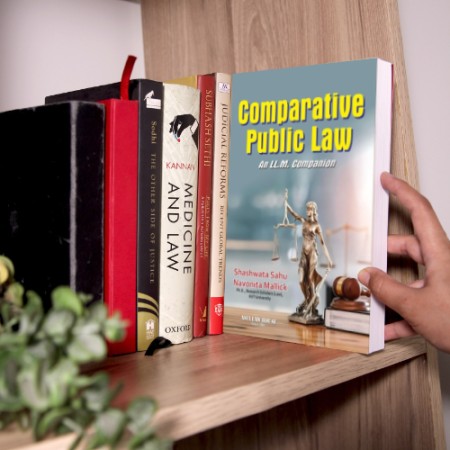
Comparative Public Law: An LL.M. Companion
Comparative Public Law: An LL.M. Companion by Shashwata Sahu and Navonita Mallick is a detailed academic resource designed to support postgraduate study in public law. The book spans 696 pages and provides a structured and comprehensive exploration of public law themes. It covers a wide range of topics, including the evolution of legal systems, separation of powers, judicial review, fundamental rights, and comparative approaches to constitutional and administrative governance. Tailored specifically for LL.M. students and researchers, it serves as an academic companion for developing a nuanced and comparative understanding of public law across jurisdictions.
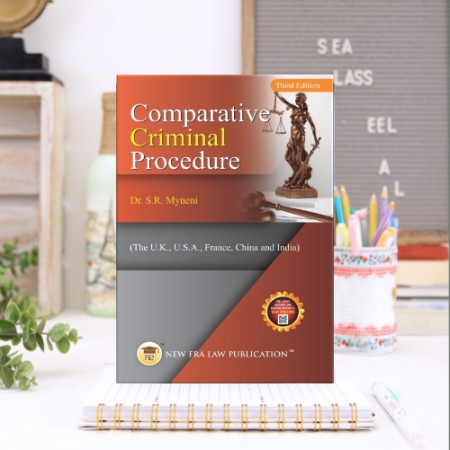
Comparative Criminal Procedure
This book offers a comprehensive comparative study of criminal procedure across major jurisdictions representing both adversarial and inquisitorial traditions, including India, the UK, the U.S.A., France, and China. It analyzes key pre-trial processes such as arrest, bail, custody, search and seizure, and evidentiary methods, highlighting how they differ across systems. The text blends conceptual frameworks with practical case studies for deeper applied understanding. It serves as a valuable resource for students, researchers, and practitioners seeking a global view of how legal systems approach criminal procedure.















